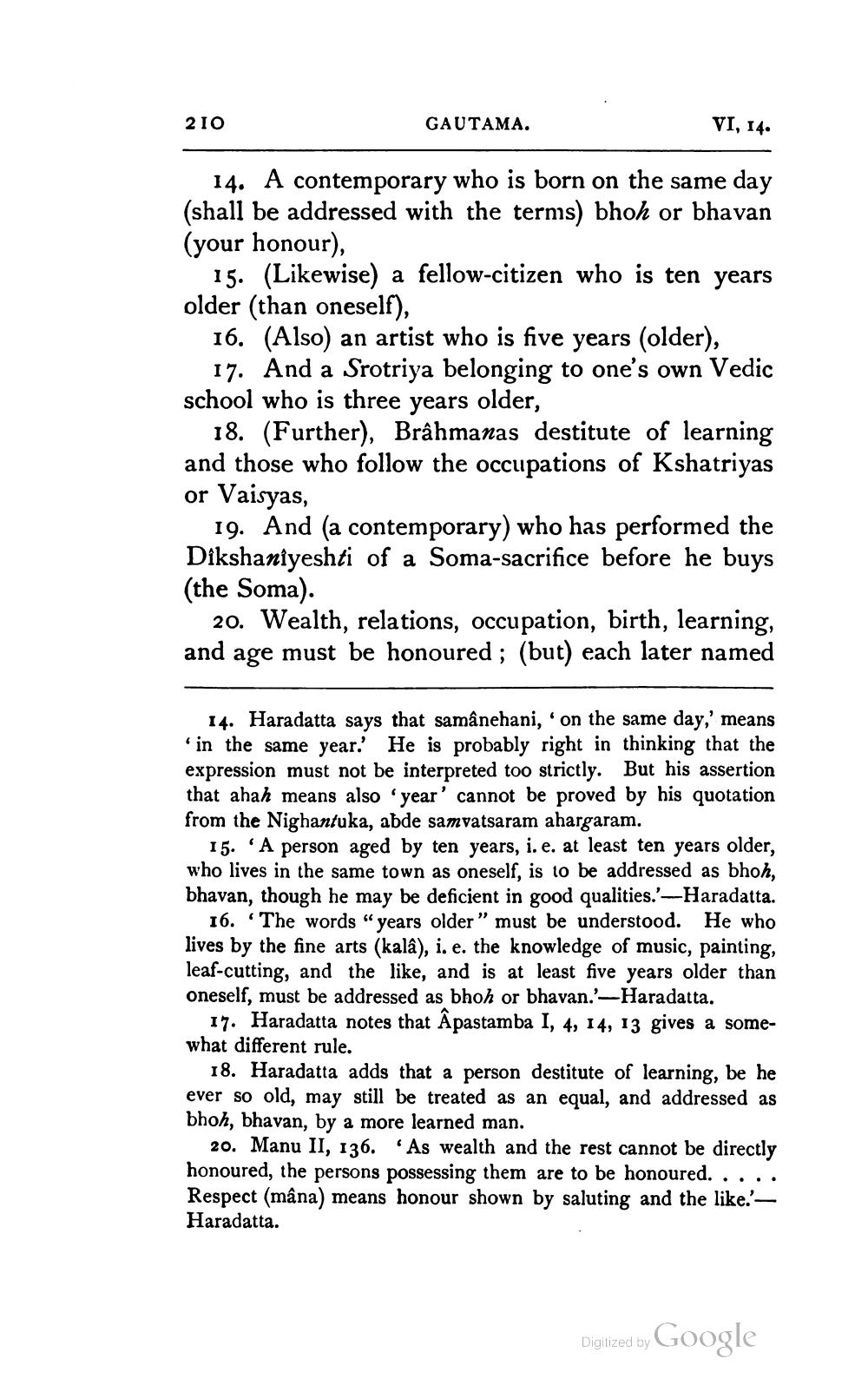________________
210
GAUTAMA.
VI, 14.
14. A contemporary who is born on the same day (shall be addressed with the terms) bhoh or bhavan (your honour),
15. (Likewise) a fellow-citizen who is ten years older (than oneself),
16. (Also) an artist who is five years (older),
17. And a Srotriya belonging to one's own Vedic school who is three years older,
18. (Further), Brâhmanas destitute of learning and those who follow the occupations of Kshatriyas or Vaisyas,
19. And (a contemporary) who has performed the Dikshaniyeshti of a Soma-sacrifice before he buys (the Soma).
20. Wealth, relations, occupation, birth, learning, and age must be honoured ; (but) each later named
14. Haradatta says that samânehani, on the same day,' means in the same year. He is probably right in thinking that the expression must not be interpreted too strictly. But his assertion that ahah means also year' cannot be proved by his quotation from the Nighantuka, abde samvatsaram ahargaram.
15. 'A person aged by ten years, i.e. at least ten years older, who lives in the same town as oneself, is to be addressed as bhoh, bhavan, though he may be deficient in good qualities.'-Haradatta.
16. The words "years older" must be understood. He who lives by the fine arts (kalâ), i. e. the knowledge of music, painting, leaf-cutting, and the like, and is at least five years older than oneself, must be addressed as bhoh or bhavan.'-Haradatta.
17. Haradatta notes that Apastamba I, 4, 14, 13 gives a somewhat different rule.
18. Haradatta adds that a person destitute of learning, be he ever so old, may still be treated as an equal, and addressed as bhoh, bhavan, by a more learned man.
20. Manu II, 136. As wealth and the rest cannot be directly honoured, the persons possessing them are to be honoured..... Respect (mâna) means honour shown by saluting and the like.' - Haradatta.
Digitized by Google




